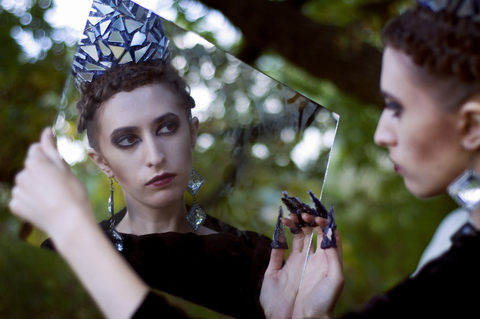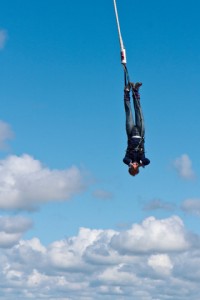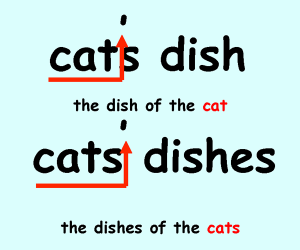 We (Edith Hope Fine and Judith Josephson) are the Grammar Patrol. Both of us taught for years and are now writers, with thirty plus books between us, including our two popular grammar guides, Nitty-Gritty Grammar and More Nitty-Gritty Grammar. For close to twenty years, we taught writing and grammar basics and now we blog about grammar for writers.
We (Edith Hope Fine and Judith Josephson) are the Grammar Patrol. Both of us taught for years and are now writers, with thirty plus books between us, including our two popular grammar guides, Nitty-Gritty Grammar and More Nitty-Gritty Grammar. For close to twenty years, we taught writing and grammar basics and now we blog about grammar for writers.
Capitals (and Capitols) are Capital!
Fireworks flew on the Fourth of July, illuminating the nation’s Capitol building. A capital idea! We all know the basic rules about when to use capitals: for the pronoun “I,” beginnings of sentences, people’s names, place names. But let’s look at some of the trickier situations.

Titles
Titles of plays, books, television series, movies, poems, magazines, journals, and articles can trip you up. Use capitals for the first word and all others—except prepositions, articles (a, an, the), and conjunctions.
Play: Two Gentlemen of Verona
Book: A Fighting Chance by Elizabeth Warren
TV series: House of Cards
Movie: Words and Pictures
Journal: School Library Journal
Magazine: In Style (Cap the preposition “in”: first word in this title.)
Poem: “Genie in a Jar” by Nikki Giovanni (No cap on “in”; not first word.)
Article: “Ford SUV to Challenge Jeep Wrangler”
Proper nouns
A second grader once told the Grammar Patrol that a proper noun is “a fancy noun that gets a capital.” Exactly right.
Capitalize proper nouns, including days of the week, months, and holidays, specific people & things, buildings, companies, organizations, and schools:
Sunday, August, Valentine’s Day, John Smith, Toyota, the Capitol, Pfizer, DreamWorks, Amnesty International, Baseball Hall of Fame, Bolshoi Ballet, Elton John AIDS Foundation, Southern Poverty Law Center, Howard University, Stanford University.
Historical events, documents, or government programs
Gettysburg Address, World War II, Bicentennial, Emancipation Proclamation, Civil Rights Act of 1964, Medicare, Social Security
People’s titles
Capitalize civil, religious, military, and professional titles when they appear before a person’s name. If the title follows the name, don’t capitalize the title. If a title appears without the name of a person, do not capitalize it.
• Civil Titles
President Adams
John Adams, president of the United States
I spoke with the president. (not the President)
• Religious Titles
Capitalization of titles varies among different religions and denominations. Some examples:
Rabbi Benno Scheinberg
Benno Scheinberg, the rabbi
• Professional Titles
Dr. Sujan Wong, chief of Surgery
Sujan Wong, surgeon
• Some titles, such as “Speaker of the House,” are always capitalized, with or without the person’s name.
• Names of companies and academic departments, even when they appear after a person’s title.
Ronald Josephson, professor of Foods and Nutrition
Jenni Prisk, president of Prisk Communication
Family names
If you can substitute a person’s name for a relationship name like “uncle” or “grandmother,” capitalize. If not, use lower case.
I’m writing Aunt Kirsten Josephson.
but
My aunt bought us all ice cream.
I spoke with Mother.
We sat with Bill’s grandfather, Norman Hope.
Seasons
Don’t capitalize seasons: summer, fall, winter, spring.
In the summer, we head for Hawaii.
When seasons denote specific academic semesters, use a capital letter, but no comma:
Fall 2014
Summer 2015
Religions and holy books, days, and words for a Supreme Being
Talmud, Bible, Koran
Passover, Christmas, Ramadan
Yahweh, God, Allah
Geographic regions
New England, Pacific Northwest, the South
Don’t capitalize directions: We’re fifty miles north of Atlanta.
Languages
Mona speaks Farsi at home and English at the office.
Names of computer programs
Quicken, Microsoft Word, Adobe Acrobat
Book series and editions *
Capitalize titles of book series and editions. Use lowercase letters for the words “series” and “editions.”
Gary Paulsen’s Culpepper Adventure series, large-type Reader’s Digestedition
Within parentheses
If a complete parenthetical sentence stands alone, capitalize the beginning letter.
He asked if she’d heard the news. (She hadn’t.)
With colons
• Capitalize a complete sentence or a full quotation after a colon.
Remember Murphy’s Law: Any horizontal surface fills up.
• Do not capitalize phrases, lists, or incomplete sentences after a colon.
For the big game, he wore University of Michigan’s colors: maize and blue.
* Some sources now say to use Roman rather than italics with series names: Betty Birney’s rollicking According to Humphrey series. Consistency is the key.
That’s it from the Grammar Patrol! Hope you’ll capitalize on this info! When in doubt, consult our zany Nitty-Gritty Grammar and More Nitty-Gritty Grammar guides.

 Word mix-ups can flummox even people who work with words daily.
Word mix-ups can flummox even people who work with words daily. Isn’t dangling for earrings, bungee jumpers, or grapes on the vine?
Isn’t dangling for earrings, bungee jumpers, or grapes on the vine? The Grammar Patrol loves Frazz, the erudite cartoon strip by the Jef Mallett. In one, a student tells Frazz, the school custodian, “Violets are like flowers in the right place, and weeds in the wrong place. Like apostrophes!”
The Grammar Patrol loves Frazz, the erudite cartoon strip by the Jef Mallett. In one, a student tells Frazz, the school custodian, “Violets are like flowers in the right place, and weeds in the wrong place. Like apostrophes!” The same goes for the mailbox that says “The Smith’s.” That’s two bloopers in just one sign. First, “Smith” is singular. “Smiths” is plural—more than one Smith lives there. An apostrophe added correctly (as in “The Smiths’ ”) shows possession. But why use the possessive? The Smiths’ what? The Smiths’ mailbox? Keep it simple. The sign should read “The Smiths” as in “the Smiths live here.”
The same goes for the mailbox that says “The Smith’s.” That’s two bloopers in just one sign. First, “Smith” is singular. “Smiths” is plural—more than one Smith lives there. An apostrophe added correctly (as in “The Smiths’ ”) shows possession. But why use the possessive? The Smiths’ what? The Smiths’ mailbox? Keep it simple. The sign should read “The Smiths” as in “the Smiths live here.” That’s when Miss Hoezel, her English teacher, donned her blue grammar cape and flew to the rescue. As the Grammar Patrol, we’ve used her clever trick many times when teaching grammar basics. We call it the arrow method.
That’s when Miss Hoezel, her English teacher, donned her blue grammar cape and flew to the rescue. As the Grammar Patrol, we’ve used her clever trick many times when teaching grammar basics. We call it the arrow method.